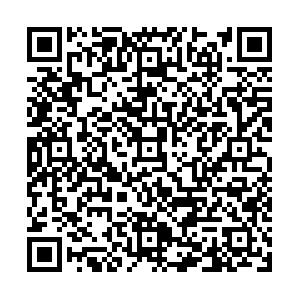Effect of empowerment education model on patients with poor blood glucose control in diabetes mellitus
-
摘要:
目的 探讨赋能授权教育模式对糖尿病血糖控制不佳患者自我管理能力及血糖控制水平的影响。 方法 选取2019年1—12月浙江大学医学院附属杭州市第一人民医院内分泌科收治的90例血糖控制不良的2型糖尿病患者,按随机数字表法分为对照组(45例)和观察组(45例)。对照组采取常规健康教育,观察组实施赋能授权教育模式,评估比较2组患者干预前后的空腹血糖(fiber bragg grating,FBG)、餐后2 h血糖(postprandial blood glucose, PBG)、糖化血红蛋白(hemoglobinA1c,HbA1c)水平及自我管理行为能力。 结果 干预6个月后,观察组患者FBG、PBG、HbA1c水平分别为(6.55±1.23)mmol/L、(9.34±2.34)mmol/L、(6.56±1.93)%,均优于对照组[(7.86±1.43)mmol/L、(13.25±3.12)mmol/L、(7.72±1.16)%],差异均有统计学意义(t=4.392、6.341、3.455, 均P < 0.05);观察组患者的自我管理行为总得分[(104.51±7.63)分]明显高于对照组[(74.13±9.57)分],差异有统计学意义(t=16.724,P<0.05)。 结论 赋能授权教育模式有助于提升糖尿病患者自我管理能力,改善血糖控制水平。 Abstract:Objective To explore the influence of empowerment education mode on self-management ability and blood glucose control level of patients with poor glucose control in diabetes mellitus. Methods Total 90 patients with type 2 diabetes who had poor glucose control were selected from Department of Endocrinology, No.1 People's Hospital of Hangzhou, Zhejiang University from January to December 2019. They were randomly divided into control group (45 cases) and intervention group (45 cases). The control group was given routine health education, and the intervention group was given empowerment education mode. The levels of fasting blood glucose (FBG), postprandial blood glucose (PBG), glycosylated hemoglobin (HbA1c) and self-management behavior ability of the two groups before and after the intervention were evaluated and compared. Results After 6 months of intervention, the levels of FBG, PBG and HbA1c in the observation group were (6.55±1.23, 9.34±2.34, 6.56±1.93) mmol/L, which were better than those of the control group (7.86±1.43, 13.25±3.12, 7.72±1.16) mmol/L, and the differences were statistically significant (t=4.392, 6.341, 3.455, P < 0.05). The total score of self-management behavior in the intervention group (104.51±7.63) was significantly higher than that in the control group (74.13±9.57), the difference was statistically significant (t=16.724, P < 0.05). Conclusion Empowerment and empowerment education mode can help to improve the self-management ability of diabetic patients and improve the level of blood glucose control. -
Key words:
- Empowerment education model /
- Self-management /
- Diabetes mellitus /
- Blood glucose control
-
表 1 2组2型糖尿病患者基线资料比较
组别 例数 性别(男/女,例) 年龄(x ±s,岁) 病程(x ±s,年) 文化程度(例) 小学 中学 大学 观察组 45 25/20 49.6±4.1 4.5±0.8 15 22 8 对照组 45 23/22 50.3±4.3 4.6±0.9 17 21 7 统计量 0.219a 0.791b 0.557b 0.457c P值 0.413 0.215 0.289 0.647 注:a为χ2值,b为t值,c为U值。 表 2 2组2型糖尿病患者干预前后血糖指标比较(x ±s)
组别 例数 FBG(mmol/L) PBG(mmol/L) HbA1c(%) 干预前 干预后 干预前 干预后 干预前 干预后 观察组 45 10.32±2.33 6.55±1.23a 17.34±3.97 9.34±2.34a 9.83±2.12 6.56±1.93a 对照组 45 10.41±2.39 7.86±1.43a 17.97±4.01 13.25±3.12a 9.94±2.24 7.72±1.16a t值 0.169 4.392 0.706 6.341 0.215 3.455 P值 0.886 <0.001 0.482 <0.001 0.831 0.004 注:与干预前比较,aP < 0.05。 表 3 2组2型糖尿病患者自我管理能力评分比较(x ±s,分)
组别 例数 合理饮食 规律运动 遵医用药 血糖监测 干预前 干预后 干预前 干预后 干预前 干预后 干预前 干预后 观察组 45 16.57±2.46 21.78±4.06a 10.29±1.42 16.82±2.35 11.24±2.04 16.46±2.46 8.66±1.13 12.87±1.51a 对照组 45 16.65±2.63 18.46±2.92a 10.48±1.47 12.38±1.85 11.35±2.09 12.14±2.33 8.92±1.21 9.52±1.42a t值 0.875 16.891 1.033 15.710 0.891 18.087 0.658 14.089 P值 0.384 <0.001 0.305 <0.001 0.376 <0.001 0.513 <0.001 组别 例数 足部护理 高低血糖处理 总分 干预前 干预后 干预前 干预后 干预前 干预后 观察组 45 13.12±1.92 19.53±2.62a 12.28±1.49 18.67±1.98a 65.42±7.37 104.51±7.63a 对照组 45 13.26±2.08 16.24±2.31a 12.45±1.55 13.39±1.76a 66.01±7.42 74.13±9.57a t值 0.412 13.287 0.672 10.082 0.481 16.724 P值 0.681 <0.001 0.503 0.001 0.632 <0.001 注:与干预前比较,aP<0.05。 -
[1] 中华医学会糖尿病学分会, 国家基层糖尿病防治管理办公室. 国家基层糖尿病防治管理指南(2018)[J]. 中华内科杂志, 2018, 57(12): 885-893. doi: 10.3760/cma.j.issn.0578-1426.2018.12.003 [2] WANG L, GAO P, ZHANG M, et al. Prevalence and ethnic pattern of diabetes and prediabetes in China in 2013[J]. JAMA, 2017, 317(24): 2515-2523. doi: 10.1001/jama.2017.7596 [3] LUNDBERG P C, THRAKUL S. Self-care management of Thai Buddhists and Muslims with type 2 diabetes after an empowerment education program[J]. Nurs Health Sci, 2018, 20(3): 402-408. doi: 10.1111/nhs.12423 [4] VALLIS M, LEE-BAGGLEY D, SAMPALLI T, et al. Equipping providers with principles, knowledge and skills to successfully integrate behaviour change counselling into practice: A primary healthcare framework[J]. Public Health, 2018, 154(10): 70-78. http://europepmc.org/abstract/MED/29216495 [5] HUANG T T, SUNG C C, WANG W S, et al. The effects of the empowerment education program in older adults with total hip replacement surgery[J]. J Adv Nurs, 2017, 73(8): 1848-1861. doi: 10.1111/jan.13267 [6] VAHEDIAN-AZIMI A, MILLER A C, HAJIESMAIELI M, et al. Cardiac rehabilitation using the Family-Centered Empowerment Model versus home-based cardiac rehabilitation in patients with myocardial infarction: A randomised controlled trial[J]. Open Heart, 2016, 3(1): 349-352. http://europepmc.org/articles/PMC4838765/ [7] HUANG T T, SUNG C C, WANG W S, et al. The effects of the empowerment education program in older adults with total hip replacement surgery[J]. J Adv Nurs, 2017, 73(8): 1848-1861. doi: 10.1111/jan.13267 [8] 周春兰, 汪思祺, 王艳芳, 等. 基于授权赋能理论的慢性病患者积极度研究[J]. 中华医院管理杂志, 2018, 34(8): 677-681. doi: 10.3760/cma.j.issn.1000-6672.2018.08.016 [9] 中华医学会糖尿病学分会. 中国2型糖尿病防治指南(2017年版)[J]. 中华糖尿病杂志, 2018, 10(1): 4-67. doi: 10.3760/cma.j.issn.1674-5809.2018.01.003 [10] 万巧琴, 尚少梅, 来小彬, 等. 2型糖尿病患者自我管理行为量表的信、效度研究[J]. 中国实用护理杂志, 2008, 24(7): 26-27. doi: 10.3760/cma.j.issn.1672-7088.2008.07.009 [11] 陈玉婷, 林春松, 叶秀娟. 健康赋权理论在社区老年代谢综合征患者中的应用[J]. 现代临床医学, 2017, 43(3): 223-225. https://www.cnki.com.cn/Article/CJFDTOTAL-YYCD201703026.htm [12] 黄海玲, 陈小敏, 曹结芳. 社区糖尿病自我管理模式健康教育效果研究[J]. 中国健康教育, 2016, 32(1): 20-23. https://www.cnki.com.cn/Article/CJFDTOTAL-ZGJK201601006.htm [13] 王丽娟, 高俊香, 康烁, 等. 微信教育在2型糖尿病病人延续护理中的应用[J]. 护理研究, 2016, 30(10): 1211-1213. doi: 10.3969/j.issn.1009-6493.2016.10.016 [14] CUMMINGS D M, LUTES L D, LITTLEWOOD K, et al. Impact of distress reduction on behavioral correlates and A1C in African American women with uncontrolled type 2 diabetes: results from EMPOWER[J]. Ethn Dis, 2017, 27(2): 155-160. doi: 10.18865/ed.27.2.155 [15] 孙一勤, 姜安丽. 慢性病健康赋能理论研究[J]. 中华医院管理杂志, 2017, 33(9): 700-703. doi: 10.3760/cma.j.issn.1000-6672.2017.09.019 [16] 杨贵云, 赵梅珍, 郑超, 等. 基于习惯养成教育的延续护理对老年2型糖尿病患者胰岛素治疗依从性的影响[J]. 中华现代护理杂志, 2016, 22(19): 2691-2695. doi: 10.3760/cma.j.issn.1674-2907.2016.19.007 [17] CHENG L, SIT J W H, CHOI K C, et al. Effectiveness of a patient-centred, empowerment-based intervention programme among patients with poorly controlled type 2 diabetes: A randomised controlled trial[J]. Int J Nurs Stud, 2018, 79: 43-51. doi: 10.1016/j.ijnurstu.2017.10.021 [18] CORTEZ D N, MACEDO M M, SOUZA D A, et al. Evaluating the effectiveness of an empowerment program for self-care in type 2 diabetes: a cluster randomized trial[J]. BMC Public Health, 2017, 17(1): 41-51. doi: 10.1186/s12889-016-3937-5 -

 点击查看大图
点击查看大图
表(3)
计量
- 文章访问数: 822
- HTML全文浏览量: 261
- PDF下载量: 6
- 被引次数: 0



 下载:
下载: 